Bacteria & Negligence Result in Dead Children In Barquisimeto
As the healthcare crisis worsens, several reports have come to light regarding the death of 16 children in a Barquisimeto hospital. The deaths are attributed to bacteria serratia marcescens and the negligence of authorities who would rather silence the victims than help prevent more cases.


Photo: Juan Diego Vílchez
Carmen Silva is the mother of one of the 16 children who have died due to the epidemic outbreak of the bacteria serratia marcescens in the Agustín Zubillaga University Pediatric Hospital (HUPAZ) in Barquisimeto, in western Venezuela.
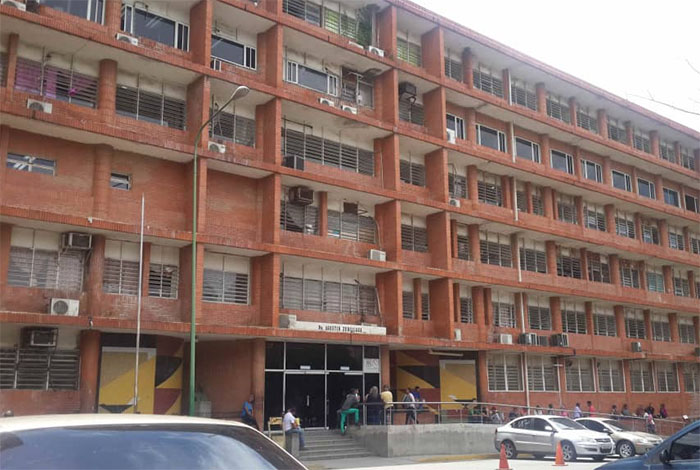 HUPAZ. Photo: Juan Diego Vílchez
HUPAZ. Photo: Juan Diego Vílchez
“My son had leukemia, I brought him to the hospital so he could begin his chemotherapy treatment. They would apply the treatment for two days because he had a very high fever. A week after we arrived, his mouth started filling with bleeding moles. He underwent a blood test, which resulted positive. He got antibiotics for a month, but it was useless, his condition worsened and he died.”
Carmen says that while his son was hospitalized, the hospital authorities didn’t tell her that her son had been infected with the bacteria. She adds that, during her stay at the healthcare center, she saw other similar cases: “When my son was there, there were two or three other children infected with the same bacteria.”
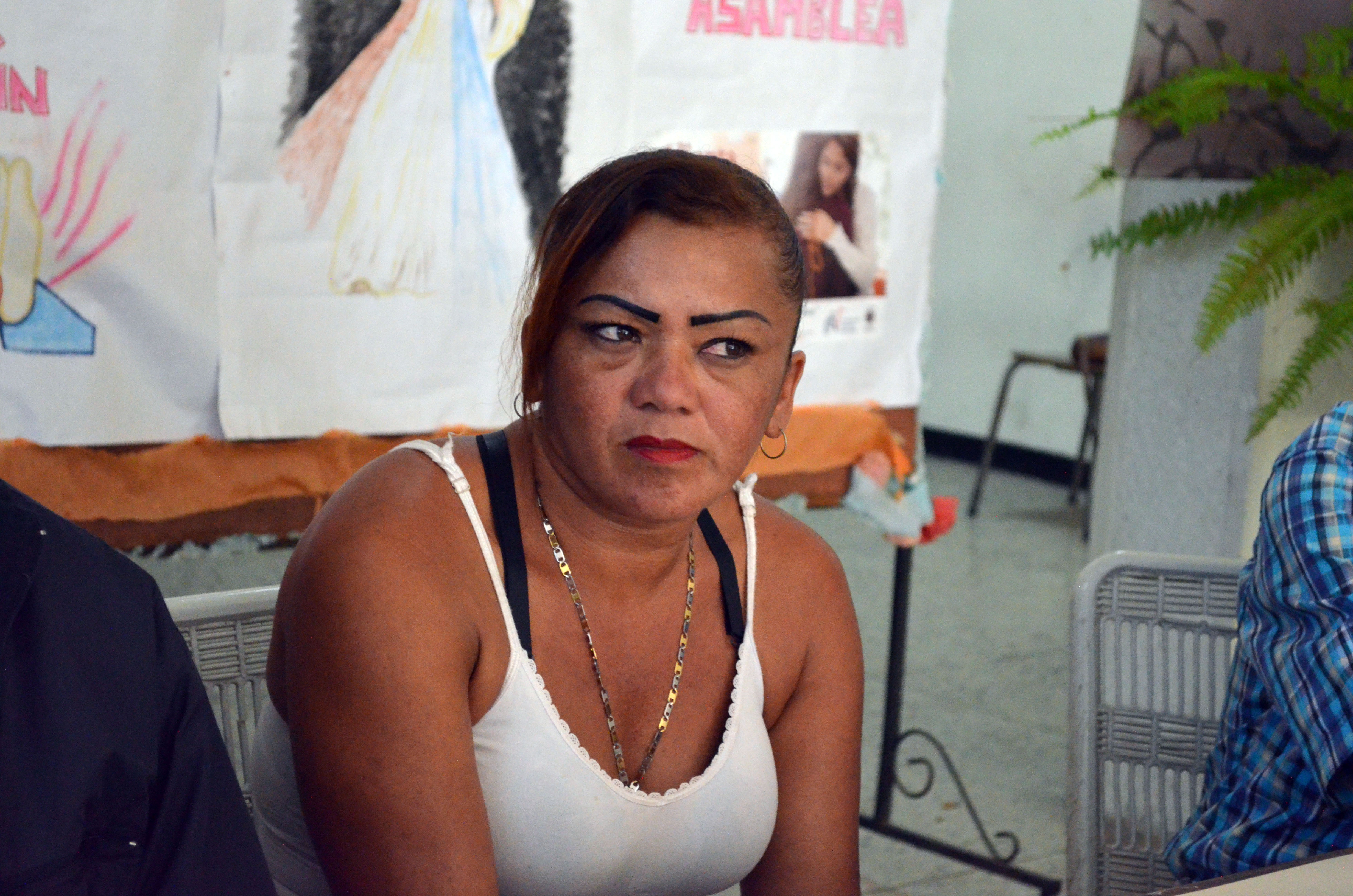 Carmen Silva, mother of a 16-month-old victim. Photo: Juan Diego Vílchez
Carmen Silva, mother of a 16-month-old victim. Photo: Juan Diego Vílchez
The painful stories related to the serratia marcescens repeat with few differences in the bacteria’s behavior in its victims.
María Pérez, mother of a two-month-old girl, says that her daughter entered HUPAZ on June 2, 2018, with vomit. On June 5, she’d become another of the dangerous bacteria’s victims.
“My daughter started suffering from a swollen arm and then her skin started changing color. The moles appeared later… The doctors never told us that the baby had a bacteria.”
María and her husband demand justice from the competent authorities for their daughter’s death.
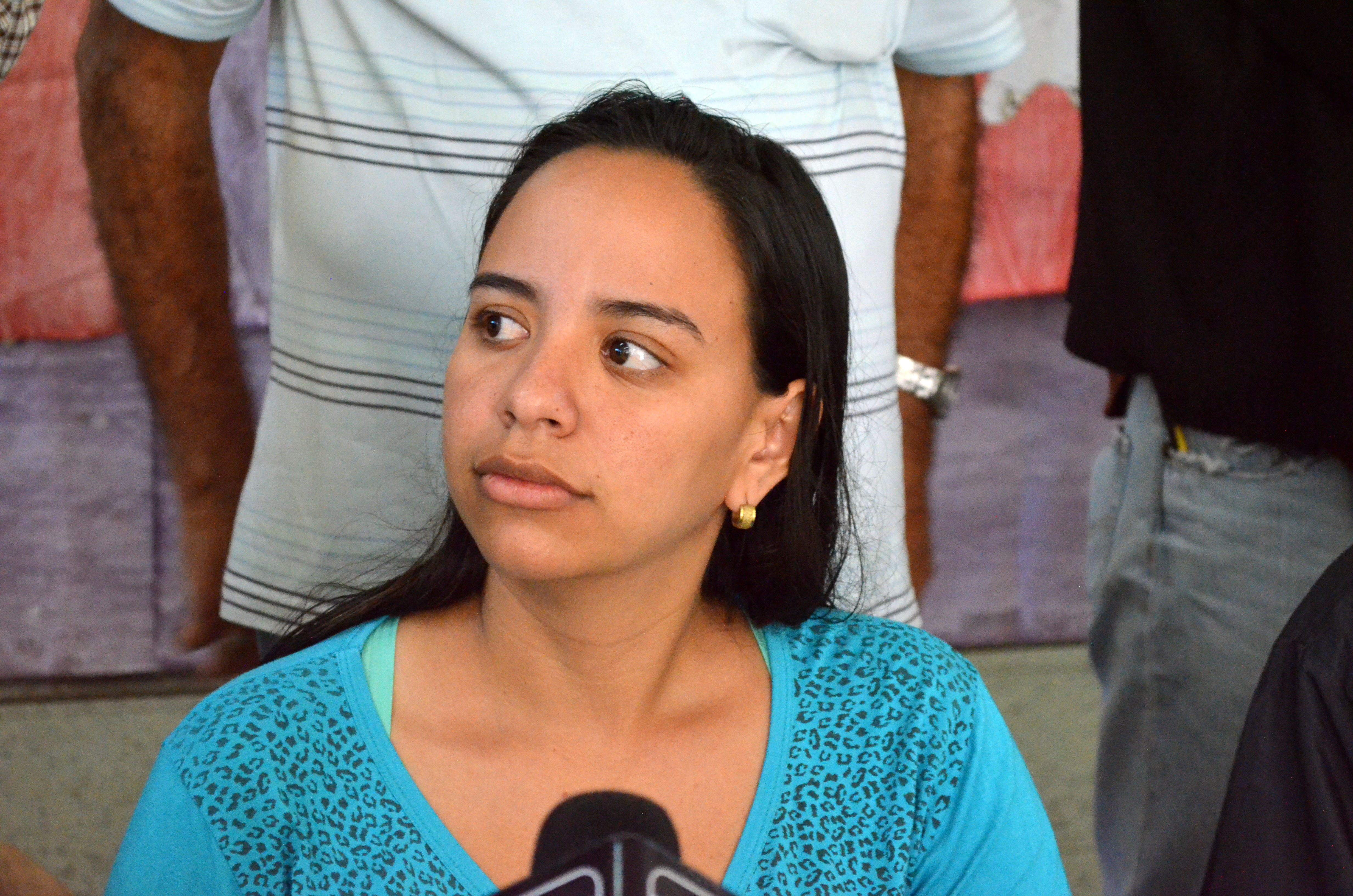 María Pérez, mother of a two-month-old victim. Photo: Juan Diego Vílchez
María Pérez, mother of a two-month-old victim. Photo: Juan Diego Vílchez
Breaking the silence
Early this year, Dr. Leymilena Jaime (@leymij14), pediatric intensivist of HUPAZ’s Newborn and Pediatric Intensive Care Unit, presented a medical report showing solid evidence of the cases affected by the bacteria.
According to Jaime, between January and March there were 28 confirmed cases. She says that 85% of blood tests carried out on these patients were all positives, and 11 of them died.
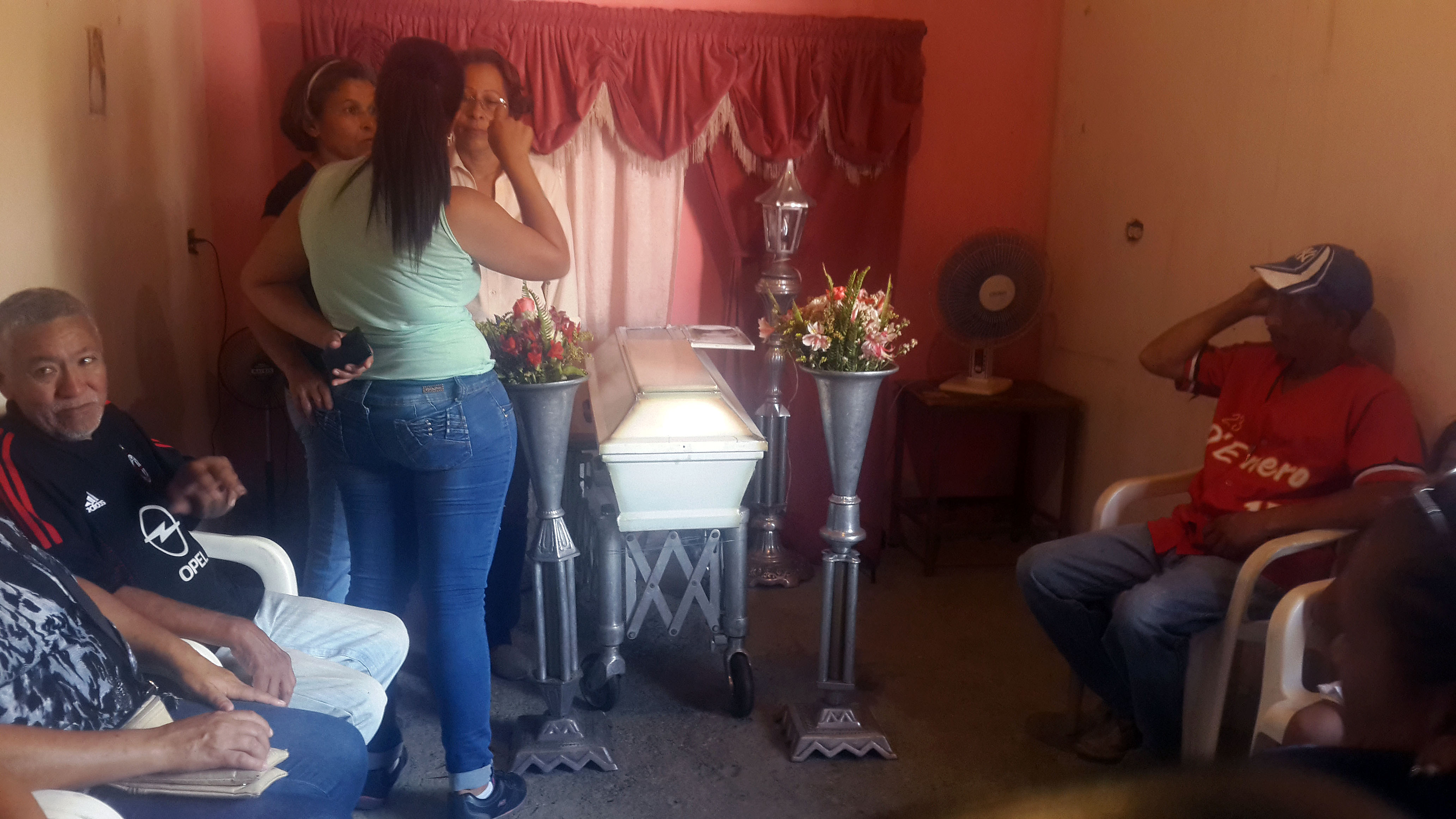 Photo: Juan Diego Vílchez
Photo: Juan Diego Vílchez
These cases put specialists in high alarm. Aware of the bacteria’s aggressiveness, they managed to identify 19 new positive cases in the pediatric hospital and two more patients with similar symptoms who couldn’t get blood tests because the hospital doesn’t have a lab and the parents didn’t have the necessary funds.
For the last four years, this healthcare center hasn’t had a laboratory, much less the reagents to perform tests. This is why most of the victims’ parents and relatives must go to private labs near the hospital to get their blood tests.
The authorities in charge, Health Vice-Minister and Regional Health Director Dr. Linda Amaro (@LindaAmaro), and hospital director Dr. Rafael Agüero (@drreaguero), haven’t implemented the necessary control measures to eradicate the microbe, despite being informed of the bacteria outbreak. These authorities never carried out the appropriate epidemiological study, even though the doctors in charge sent written requests for sterilization. The authorities merely denied the veracity of the results issued by private hospitals.
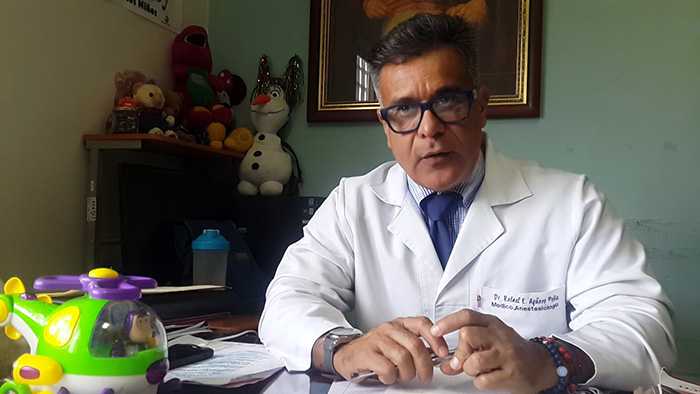 Dr. Rafael Agüero. Photo: Juan Diego Vílchez
Dr. Rafael Agüero. Photo: Juan Diego Vílchez
Dr. Jaime points out that even though they reported the bacteria outbreak, the hospital’s authorities didn’t carry out the proper epidemiological study, nor implemented the control measures used in these cases to eradicate microbes. Even though the doctors in charge sent written requests for sterilization, the authorities ignored them.
A call for justice
NGO Madres y Padres por los Niños de Venezuela (@mapanivzla) (MAPANI), that provides legal and psychological support to the parents and relatives of the victims of the bacteria serratia marcescens, recently filed a constitutional protective measure in Lara State’s courts, demanding justice for confirmed cases.
Lawyer Gretna El Halabi, head of MAPANI, accompanied by some of the parents of deceased children, said that there are still cases of children infected by the bacteria in the hospital.
“We keep finding new cases with negative blood tests but show symptoms of serratia infection. We have evidence in pictures and videos.”
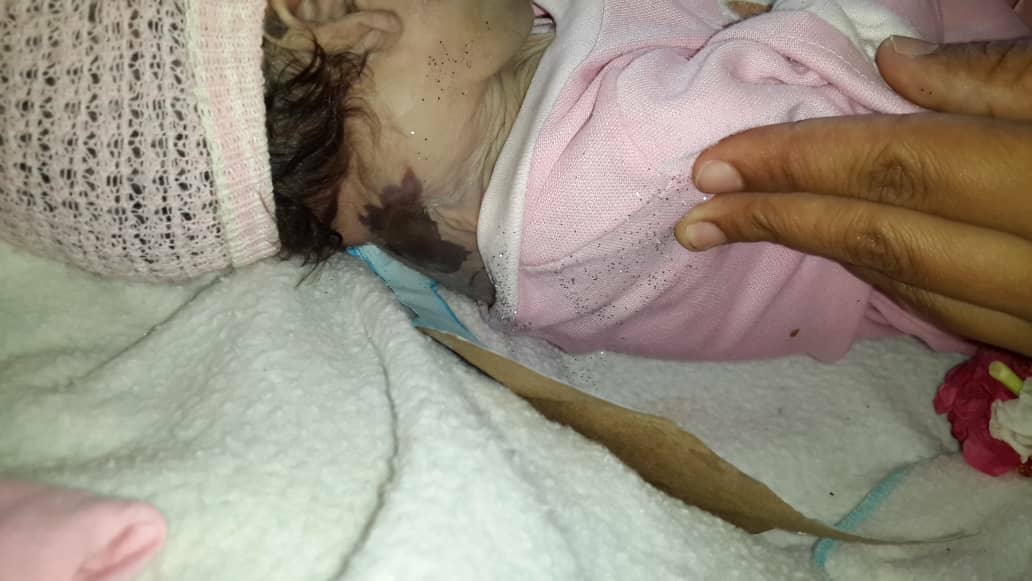 Photo: Juan Diego Vílchez
Photo: Juan Diego Vílchez
The protective measure was declared inadmissible by Luis Flores, the judge with jurisdiction on the matter of protection of children and teenagers, who notified the plaintiff that the legal measure didn’t proceed because the administrative channels weren’t exhausted and the abused rights weren’t detailed.
El Halabi called the measure a violation against the rule of law. Therefore, she said that they’ll soon take the issue before international instances, among them the UN Human Rights System.
Lastly, she insisted on demanding HUPAZ authorities to sterilize the healthcare center according to the World Health Organization’s (WHO) procedures.
Caracas Chronicles is 100% reader-supported.
We’ve been able to hang on for 22 years in one of the craziest media landscapes in the world. We’ve seen different media outlets in Venezuela (and abroad) closing shop, something we’re looking to avoid at all costs. Your collaboration goes a long way in helping us weather the storm.
Donate




